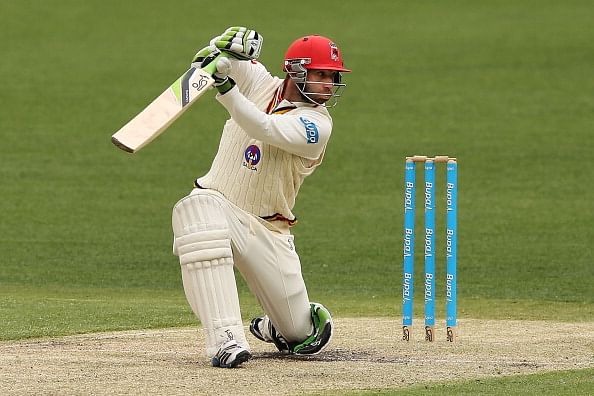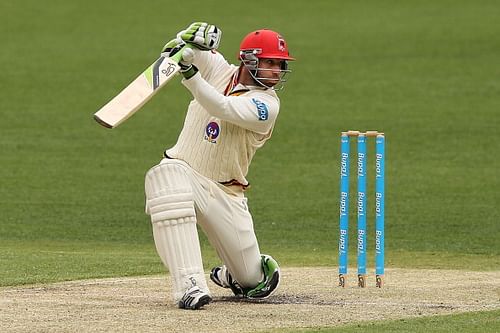
Counselling, therapy and postponement? Stop treating professional cricketers like children

Disclaimer: The views expressed in this article are of the author’s and do not necessarily reflect those of the site.
There is no denying that the death of Phillip Hughes was tragic and the almost simplistic manner in which it happened has affected everyone who follows sports. As we watched the patchwork internet video, we extrapolated it to little, insignificant events in our own lives to realize how fragile our existence is. Hughes was a talented young man, great at what he did, and so his family deserves the outpouring of global grief and tributes.
That being said, I am going to be blunt about what I feel about all this talk coming out of Australia on the need for players to undergo therapy and the subsequent postponement of the first Test match. Let me be brutal. This is not how the real world functions. This is not life, or what tough professional sportsmen and women stand for.
Do professional cricketers require counselling?
As obvious and as cruel as it sounds, death comes to everyone: professionals, businessmen, firefighters, soldiers, sportsmen, children, wasteful kings and brilliant scientists and even the so called immortal leaders of nations and movie stars. People are born. People die. As Chuck Palahniuk writes in ‘Fight Club’, “On a long enough timeline, the survival rate for everyone drops to zero.”
One by one, people around you will die; it has been the same in the past and will be the same in the future. While it is painful and unbelievably hard to deal with the passing away of close ones, we can overcome it. Death is not a new concept to this world and to professionals who make it go round and round.
Cricketers are professionals. And like everywhere else, there are challenges to be overcome to put food on your family’s table. The world of sports is certainly demanding, highly competitive and unforgiving, especially at the highest level, but so are other occupations. Some sports are dangerous. But the occupational hazards in other professions are as high, and in most cases higher.
Life and death, like we all know, never cease to surprise. Every man or woman will lose a colleague, a peer, and a friend at some point in their lives at work. At work, it could be a mishap, an occupational accident, stress, or bad luck like in the case of Hughes.
Do we need therapy? Do tough as nails professional sportspeople need therapy to deal with something as primordial as death? Counselling in sports is something that has cropped up in recent decades with a whole industry being built around it. As human ingenuity pushed athletes towards having the perfectly custom-made body for their sports in the last few years, the next level was to work with the mind.
The levers for this rise are open to debate, and I don’t buy the argument that we are all not as tough up in the head as the generations before us. I don’t believe we need extra help for ‘mental’ issues. I believe that it is a great disservice to the Australian cricketing fraternity every time a suit from Cricket Australia says that in this difficult time all possible help, including therapy, is being provided to the players.
Now, that is BS straight out of MBA 101.
They can deal with it
Give some credit to cricketers. They are tough young men, who have made a really difficult choice of taking up sport as a profession. These cricketers face balls bowled at speeds which the rest of us can only view and comment upon from the safety of our homes. They are tough men who are playing at the highest levels not only because of their talent, but because they can handle the mental and physical aspects of professional cricket better than the rest of us. They are not pansies.
Counselling (God I even hate the way the word sounds), if any required, would be best delivered to them by a colleague or by a friend, or by an ex-cricketer who has played the game and understands what goes on inside a fellow professional’s head. Not by a doctor brought up reading Pavlov, and Halos and Horns, but by men who have heard a cricket ball mercilessly thud into human flesh. And inspiration has to come from within, like it has been every time they have faced a challenge.
Let me bring it down a notch. Even in your and my daily lives, imagine what you and I feel when a colleague dies due to, say, a heart attack brought on by endless sales targets. Do you want a doctor from a fancy medical college telling you to take it easy, or would you rather have someone who understands what you do come to you, share a glass of beer and tell you to take it easy and avoid typical professional pitfalls if possible?
Take the case of Sean Abbot. He will be better served by his own support system – family, friends, colleagues and fellow fast bowlers – than a sports doc.
That is my view, and I say all this childish talk of support (what exactly does that translate to? Do they form a circle and hold hands? ) to cricketers will be counterproductive every time they step on to the playing arena. Any sign of weakness and their opponents will pounce on it – not directly (considering how politically correct one has to be these days) but in some way.
For example, Virat Kohli went on to resume his innings at a first-class cricket match the very day his father died. You think he needs therapy on how to deal with life? Even everyone’s favorite punching bag, Ishant Sharma, the young man – love him or hate him – comes in to bowl with the same heart after having millions of us mock him in stadiums and outside of it. You think he needs counselling?
Professionals need heart-to-heart talks by peers - or they will either fall from their level of achievement or someone will replace them. Give them credit for being strong men and women.
The first Test should not have been postponed
This, I believe, has more to do with trying to appear to be doing the right thing, than any other reason. Like I said, death happens. Firefighters, army men, even us much maligned executives in our fancy cubicles, turn up to work the next day after a friend or a colleague passes away. Forget grown-ups, even school children attend school irrespective of the death of a classmate. Life goes on. Cliché, and repeat alert: life goes on. Relentlessly. Brutally. Seamlessly.
The whole machinery is too large, and too many things are linked with too many people to stop our lives or postpone them. While I understand that Hughes’ funeral is on the day before the Test match, is that reason enough for postponement?
Call me cold. Call me detached. But the whole ecosystem of professional sports – from broadcasters to event managers to players to umpires to spectators – runs into thousands of lives impacted without any delay. And his passing away did not happen on the day of the Test, or a day before. This could have, correction – this should have been managed better.
Everyone impacted has grieved. Everyone has paused and thought about what young Phil stood for. At the end of the day, only the family will be left alone in their mourning. That is how life and this world is designed. For the rest of us, where even our lives are limited – the show must, and should have, gone on.